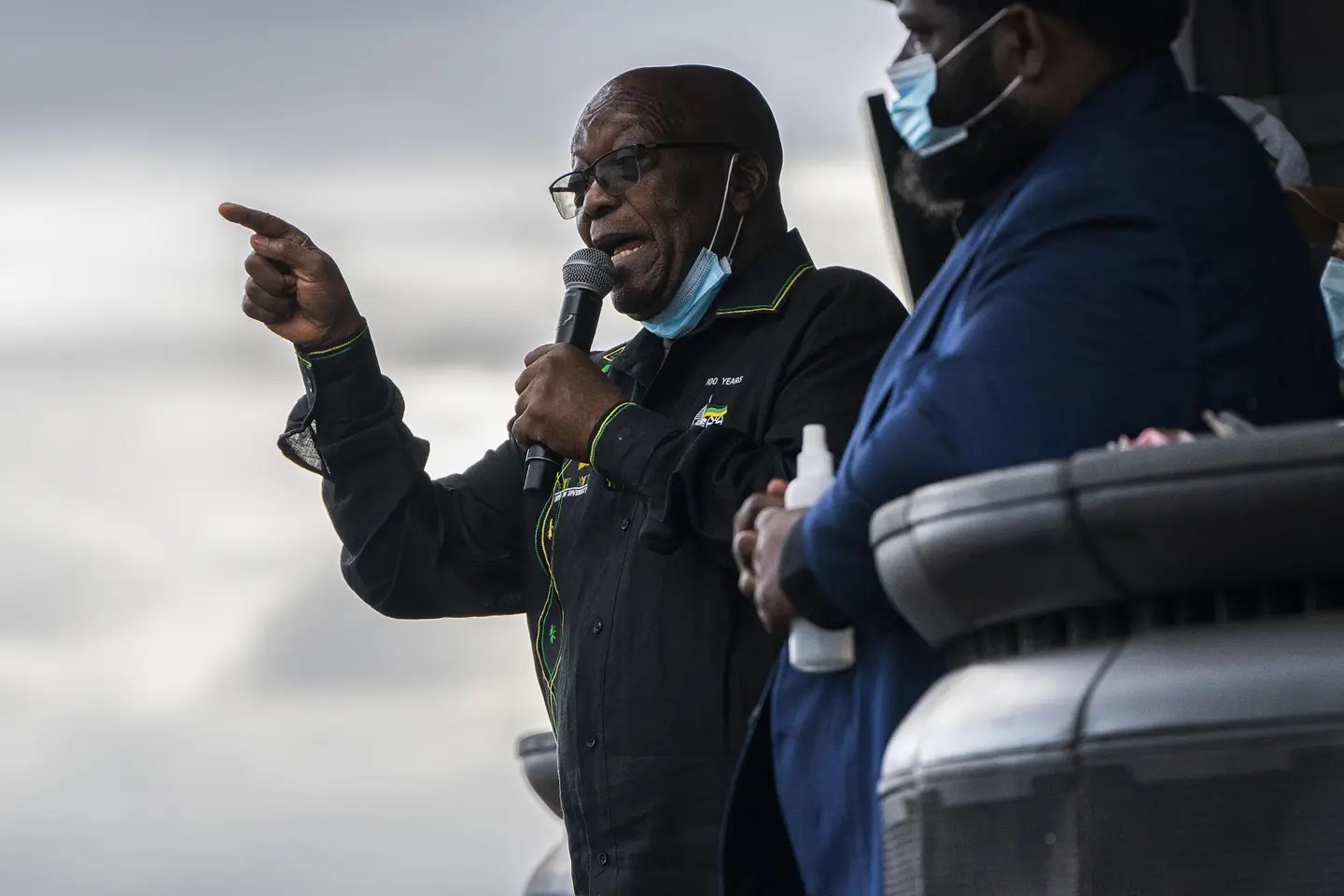Former South Africa President Zuma back into politics, yet against ANC
Despite facing ongoing legal battles and a brief imprisonment in 2021 for contempt of court, Zuma has managed to overcome hurdles to his candidacy.
-

Former president Jacob Zuma addressing supporters at his home in Nkandla, South Africa, on Sunday, July 4, 2021 (AP)
Former South African President Jacob Zuma has made an unexpected return to politics by announcing his candidacy in the upcoming May elections, running against his former party, the ruling African National Congress (ANC).
Zuma, who served as the country's fourth president from 2009 to 2018, stepped down amid a series of corruption allegations. Despite facing ongoing legal battles and a brief imprisonment in 2021 for contempt of court, Zuma has managed to overcome hurdles to his candidacy, aligning himself with a smaller party.
In December, at the age of 82, Zuma announced his intention to campaign for the uMkhonto we Sizwe (MK) party, a small radical group. The party's name pays homage to the former armed wing of the African National Congress (ANC) during the struggle against apartheid.
The upcoming parliamentary elections on May 29 are anticipated to be highly competitive, marking the closest contest since the end of apartheid. While voters will elect members of parliament, the latter will ultimately vote for the president. With the ANC's three-decade-long reign potentially at risk, there's a possibility of them losing their outright majority and being compelled to form a coalition government.
Dive deeper
Recent polls indicate that the ANC, once led by Zuma, is poised to receive less than 50 percent of the vote for the first time since the end of apartheid in 1994. According to a recent Ipsos survey, the newly formed MK party could garner over eight percent of the vote.
Zuma has rallied his supporters, urging them to "reclaim the country." Known for his powerful speeches, he has intensified his criticism of the ANC.
Zuma's influence within the ANC hindered the establishment of Cyril Ramaphosa, his successor as president, leading to internal tensions. Despite legal challenges and controversies, Zuma's colorful and charismatic persona has maintained significant popularity, allowing him to retain influence within the political landscape.
The big picture
Following his imprisonment in July 2021, which led to widespread unrest resulting in over 350 deaths, Jacob Zuma faced the most significant episode of violence in South Africa since apartheid ended, against a backdrop of economic stagnation.
During the ANC's exile under apartheid, Zuma held a formidable position as head of intelligence, known for cracking down on traitors and informers. Additionally, he spent a decade in Robben Island prison alongside Nelson Mandela. However, his reputation was tarnished by a series of legal troubles.
Zuma has expressed no fear of the judicial system. An anti-corruption commission investigated allegations of embezzlement of public funds during his nine years in power, with a 2022 report implicating Zuma in alleged state corruption.
Currently, Zuma is set to face trial in a bribery case dating back more than two decades, where he is accused of receiving significant sums from defense firm Thales, one of the companies awarded lucrative arms contracts.
Read more: South Africa elections to be held on May 29 amid tough competition

 3 Min Read
3 Min Read










